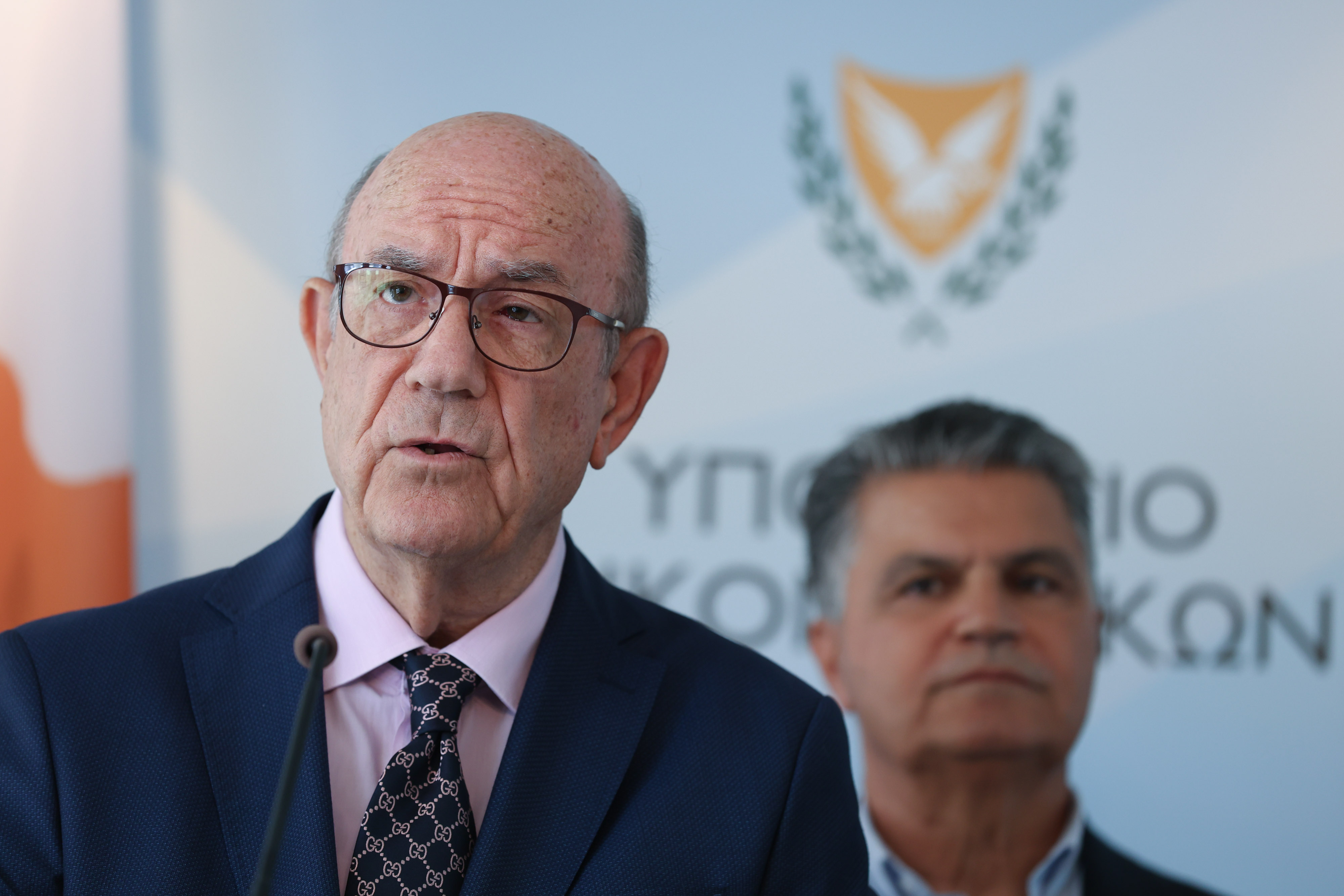Cyprus has “no intention”a to “create a confrontation with the Greek government” over the matter of the Great Sea Interconnector, Finance Minister Makis Keravnos said on Friday.
He had been asked by reporters to comment on Greek Prime Minister Kyriakos Mitsotakis’ assertion that “Cyprus must demonstrate in practice that it really wants” the cable, which if completed, would connect the energy grids of Cyprus, Greece, and Israel, and stressed that “everything that needed to be said has been said”.
“Explanations on this issue have been given with the statements which have been made in the previous period,” he said.
In this, he was referring to statements made by President Nikos Christodoulides last week, in which he said for what he described as “the umpteenth time” that Cyprus is “fully committed” to the interconnector project, adding “let them hear it in Cyprus, in Greece, in Brussels, wherever they are interested”.
Greek Foreign Minister Giorgos Gerapetritis had also commented on Christodoulides’ statements last week, saying that Christodoulides “has clearly undertaken it to reiterate the position that this is a project of strategic importance”.
“To the extent that certain technical and financial issues are resolved, the project will proceed,” he said.
To this end, he stressed that the payment of €25 million by Cyprus to Greece’s independent transmission system operator (Admie), which has so far been withheld, will not be the only such payment.
The annual €25m per year payments are to be made before the interconnector is operational, in effect helping finance the project and ensuring that Admie, the project’s 51 per cent shareholder and implementing body, will have a stable income while investing in the project before it turns a profit.
The Republic of Cyprus has cited a lack of tangible progress on the project and differences in opinion regarding how the money should be sourced in its withholding of the funding, with Keravnos saying last month of the former matter that his stance would change “if the project were being implemented right now and were at a good stage”.
He added that seabed surveys to determine where cables we laid “have not even been completed”, and that the completion of those surveys is “decisive for the total cost of the project”.
Gerapetritis had dsputed this version of events, saying that surveys on the seabed in advance of the laying of electricity cables “did not stop”, but that in fact, “the research was completed according to its planning”.
Over the latter issue, the Republic of Cyprus had initially planned to utilise funds made available to it through the European Union’s emissions trading system (ETS) to make the payments, so as to prevent the burden of the payments from falling on the taxpayer.
Admie had warned that this arrangement may violate the EU’s rules on state aid, and as such asked the Cyprus energy regulatory authority (Cera) to begin charging consumers instead.
Keravnos had earlier made reference to Admie’s demands for the €25m and the issues regarding the sourcing of the money, describing the situation as “a bit of a pseudo-dilemma”.
“Taxpayers’ money will be paid so that consumers do not have to pay, but all taxpayers are also consumers. I do not know anyone who does not use electricity,” he said last month.
Keravnos has also on multiple occasions made reference to two “independent and serious organisations” which have “concluded that the project is not sustainable”, with Greek government officials going on the record last month as having been unaware of those organisations.
Meanwhile, it was revealed that the European chief public prosecutor’s office (EPPO) had launched an investigation into the project, with Gerapetritis then forced to deny that his father-in-law was the subject of the investigation.
“No member of my family has any participation in a company associated with the project,” he said, adding that “absolutely no judicial investigation is being conducted into the issues falsely implied”.






Click here to change your cookie preferences